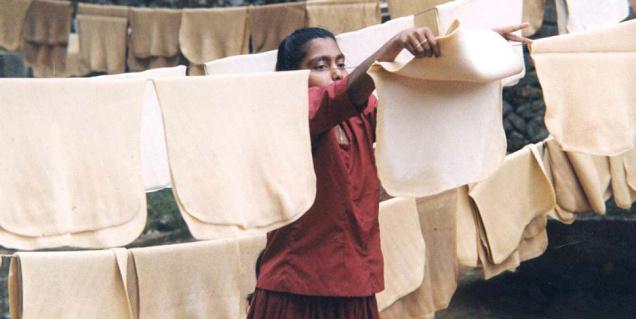The recent price improvement in natural rubber has brought some cheer for the planter community, as the majority feels that “it is a positive trend that will boost production in the coming days.”

With rates rising to ₹143/kg from ₹130 over the last week, growers said that the rising trend at a time when the sector is passing through a crisis would instil confidence among rubber farmers to return to tapping.
George Valy, President of the Kottayam Rubber Dealers Association, attributes supply tightness, demand from tyre manufacturers to deliver pending natural rubber contracts, and fluctuations in international prices as the reasons for the recent price increase.
The present conditions have brought the majority of farmers back to rubber farming. This, coupled with the Kerala government’s announcement that it will continue incentives for growers, good rains in processing areas, and long tapping holidays after an extensive summer likely to see good yields for farmers, is benefiting Kerala’s rural economy in a big way.
Strong demand
Describing the price surge as a positive trend, Sibi Monippilli, General Secretary of the Indian Rubber Growers Association, told BusinessLine that the continuing rains are hampering production and growers are facing difficulties in putting rain guards on trees.
He expressed the hope that the production would pick up in the current year itself, if the price goes beyond ₹150/kg.
According to analysts, the ongoing recovery in domestic natural rubber prices is likely to continue as demand has outpaced domestic availability. The lean production outlook because of monsoon, low stock levels in exchange warehouses and reports of quality concerns in imported rubber have also supported sentiment.
Looking ahead, prices in the most active NMCE July futures contract have an upside room till ₹156-160 levels a kg initially and later towards ₹172, if the fundamentals remain intact.
A drop below ₹120 a kg is not anticipated in the immediate future.
Import surge a concern
However, PC Cyriac, President, Indian Farmers Movement (Infam), was of the view that the basic issue plaguing the sector is uninterrupted imports of natural rubber, leading to a production drop.
To control imports, he suggested implementation of safeguard duty as per WTO recommendations and imposition of Customs tariff to create confidence among domestic growers to enhance rubber production, which is a strategically important raw material for all industrial purposes.
According to Rajiv Budhraja, Director-General, Automotive Tyre Manufacturers Association (ATMA), the situation has worsened even as prices have gone up. There is a widening gap between availability and demand, which is hurting the industry.
Currently, domestic prices are ruling at around ₹35/kg, above international prices. Despite this, there is an availability issue, he said, adding that imports are the only way to meet demand.
The deficit in supply of natural rubber has a major impact on micro, small and medium enterprises and it is difficult for the industry to manage competitiveness in the absence of raw material availability, adds Mohinder Gupta, President, All India Rubber Industries Association.



























